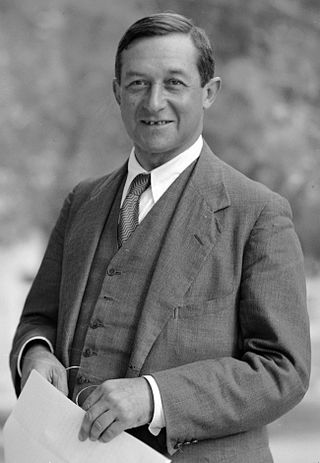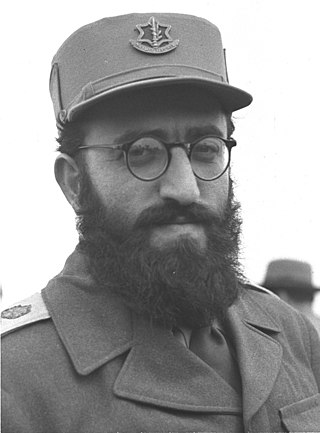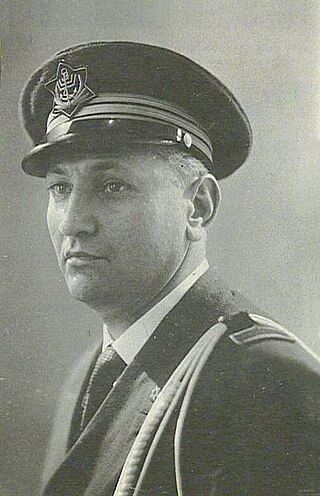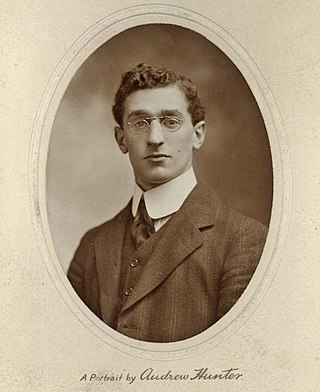Related Research Articles

Stephen Samuel Wise was an early 20th-century American Reform rabbi and Zionist leader in the Progressive Era. Born in Budapest, he was an infant when his family immigrated to New York. He followed his father and grandfather in becoming a rabbi, serving in New York and in Portland, Oregon. Wise was also a founding member of the NAACP.
Jewish studies is an academic discipline centered on the study of Jews and Judaism. Jewish studies is interdisciplinary and combines aspects of history, Middle Eastern studies, Asian studies, Oriental studies, religious studies, archeology, sociology, languages, political science, area studies, women's studies, and ethnic studies. Jewish studies as a distinct field is mainly present at colleges and universities in North America.
Brit Shalom was a group of Jewish Zionist intellectuals in Mandatory Palestine, founded in 1925.

Nahum ben Joseph Samuel Sokolow was a Zionist leader, author, translator, and a pioneer of Hebrew journalism.

Judah Leon Magnes was a prominent Reform rabbi in both the United States and Mandatory Palestine. He is best remembered as a leader in the pacifist movement of the World War I period, his advocacy of a binational Jewish-Arab state in Palestine, and as one of the most widely recognized voices of 20th century American Reform Judaism. Magnes served as the first chancellor of the Hebrew University of Jerusalem (1925), and later as its President (1935–1948).

Shlomo Goren, was a Polish-born Israeli Orthodox Religious Zionist rabbi and Talmudic scholar who was considered a foremost authority on Jewish law (Halakha). Goren founded and served as the first head of the Military Rabbinate of the Israel Defense Forces (IDF). Subsequently, he was the third Ashkenazi Chief Rabbi of Israel from 1973 to 1983, after which he established a yeshiva in Jerusalem, which he headed until his death.
Henry Egon Friedlander was a German-American Jewish historian of the Holocaust who was noted for his arguments in favor of broadening the scope of casualties of the Holocaust.

The First Aliyah, also known as the agriculture Aliyah, was a major wave of Jewish immigration (aliyah) to Ottoman Syria between 1881 and 1903. Jews who migrated in this wave came mostly from Eastern Europe and from Yemen. An estimated 25,000 Jews immigrated. Many of the European Jewish immigrants during the late 19th-early 20th century period gave up after a few months and went back to their country of origin, often suffering from hunger and disease.
Rabbi Arthur J. Lelyveld was a rabbi within the movement of Reform Judaism and activist.
Aryeh Kasher was an Israeli academic and writer. He was a professor at Tel Aviv University and winner of the 1990 Bialik Prize for Hebrew literature.
Joshua Prawer was a notable Israeli historian and a scholar of the Crusades and Kingdom of Jerusalem.

Captain Jeremiah Halpern was a Revisionist Zionist leader in Palestine who first came to prominence when he served as aide de camp to Ze'ev Jabotinsky in the 1920s when the latter was head of the Haganah in Jerusalem.

Nathan Rotenstreich was an Israeli professor of philosophy.

Yossi Goldstein is an Israeli historian and biographer. Goldstein's research focuses on Modern Jewish History, the History of Zionism, and the History of the State of Israel. Goldstein is a professor at the Faculty of the Social Sciences and the Humanities at the Ariel University Center. He has published biographies of Eli Horovitz, Levi Eshkol, Yitzhak Rabin and Golda Meir.
David Monson Bunis is a professor in the Department of Hebrew and Jewish Languages, Mandel Institute of Jewish Studies, at the Hebrew University of Jerusalem and heads its program in Judezmo studies. He is also an advisor to the Israel Autoridad Nasionala del Ladino and a member of the Akademia del Ladino en Israel. He is the editor of Languages and Literatures of Sephardic and Oriental Jews, co-editor of Massorot, a Hebrew-language journal devoted to the study of Jewish language traditions, and author of books and articles on the Judezmo language and its literature.
Labor Zionism or socialist Zionism refers to the left-wing, socialist variation of Zionism. For many years, it was the most significant tendency among Zionists and Zionist organizations, and was seen as the Zionist sector of the historic Jewish labor movements of Eastern Europe and Central Europe, eventually developing local units in most countries with sizable Jewish populations. Unlike the "political Zionist" tendency founded by Theodor Herzl and advocated by Chaim Weizmann, Labor Zionists did not believe that a Jewish state would be created by simply appealing to the international community or to powerful nations such as the United Kingdom, Germany, or the former Ottoman Empire. Rather, they believed that a Jewish state could only be created through the efforts of the Jewish working class making aliyah to the Land of Israel and raising a country through the creation of a Labor Jewish society with rural kibbutzim and moshavim, and an urban Jewish Proletariat.

Sir Leon Simon was a leading British Zionist intellectual and civil servant who took part in the drafting of the Balfour Declaration of 1917 and served on the Zionist Commission with Chaim Weizmann. An advocate of cultural Zionism and the revival of Hebrew language, Simon was a scholar and translator of Ahad Ha'am, and produced the first modern Hebrew translations of Plato. He served as the Chairman of the Hebrew University of Jerusalem’s Executive Council, and from 1949–50 as the university's President.

Aryeh Tartakower (1897–1982) was a Polish-born Israeli political activist, historian and sociologist. He was the Director of the Department of Relief and Rehabilitation of the World Jewish Congress during World War II. He was the Chair of the Department of Sociology at the Hebrew University of Jerusalem, and the author of many books about Jewish refugees and Israel.

Shulamit Bat-Dori was a Polish-Israeli playwright, kibbutz theatre director and producer, and dance festival director. A member of the Socialist-Zionist Hashomer Hatzair movement and its kibbutz, Mishmar HaEmek, she introduced political theatre to Palestine, writing and producing plays that reinforced the ideology of the Kibbutz Movement. She was known for her huge, open-air performances that enlisted hundreds of kibbutz members and attracted thousands of viewers. She represented Israel at international conferences and was a professor in the theatre department at Tel Aviv University from 1965 to 1974.
Yossi Katz is professor emeritus at the Bar-Ilan University, an expert in historical geography. His main research interests include Jewish settlement in towns and villages in the new era, settlemental, economic, political and cultural aspects of the history of Palestine and Israel, including Zionism, land laws, kibbutzim, and communal settlements in Canada.
References
- ↑ "Passing of Prof. Arthur A. (Aryeh) Goren". H net. Retrieved 30 June 2022.
- ↑ Dash Moore, Deborah. GI Jews: How World War II Changed a Generation. Cambridge, MA: Belknap Press of Harvard University Press, 2004.
- ↑ Curriculum Vitae, Arthur Aryeh Goren, May 1983; Arthur A. Goren Papers; P-985; American Jewish Historical Society, New York, NY, and Boston, MA.
- ↑ Dash Moore, Deborah. GI Jews: How World War II Changed a Generation. Cambridge, MA: Belknap Press of Harvard University Press, 2004.
- ↑ Biography, Arthur A. Goren; Arthur A. Goren Papers; P-985; American Jewish Historical Society, New York, NY, and Boston, MA.
- ↑ Arthur Aryeh Goren Faculty Page Archived May 8, 2014, at the Wayback Machine , Department of History, Columbia University. Accessed August 5, 2014.
- ↑ Curriculum Vitae, Arthur Aryeh Goren, May 1983; Arthur A. Goren Papers; P-985; American Jewish Historical Society, New York, NY, and Boston, MA.
- ↑ Arthur Aryeh Goren Faculty Page, Columbia University Institute for Israel and Jewish Studies. Accessed August 5, 2014.